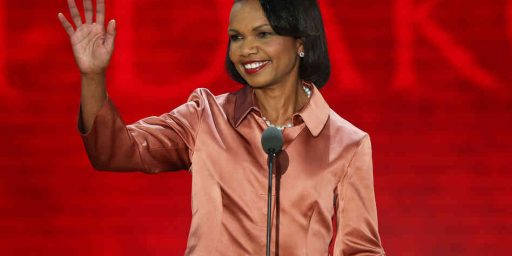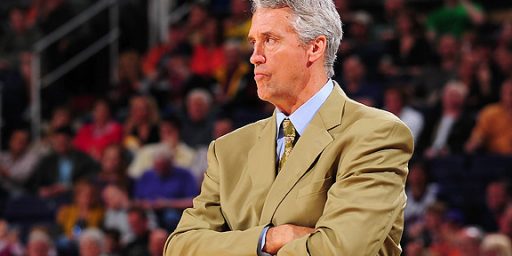Bush’s Diverse Cabinet
Bush is opening doors with a diverse Cabinet (Susan Page, USA Today)
With little fanfare and not much credit, President Bush has appointed a more diverse set of top advisers than any president in history. In his first term, Bush matched the record that President Clinton set in his first term for appointing women and people of color to the Cabinet, and Bush had a more diverse inner circle at the White House. Since his re-election last month, the president has made a series of groundbreaking nominations.
Bush has named his White House lawyer, Alberto Gonzales, to be the first Hispanic to hold one of the powerful “big four” Cabinet jobs, attorney general.
He named his national security adviser, Condoleezza Rice, to be the first female African-American secretary of State, the Cabinet’s senior position. He also nominated Margaret Spellings, his domestic policy adviser, to lead the Education Department and Cuban-born business executive Carlos Gutierrez to head Commerce.Some political analysts argue that Bush’s appointments and his matter-of-fact approach to them signal a new stage in the racial history of the nation, one in which diversity in the top ranks is taken as a matter of course. Bush and Clinton, who don’t agree on much, together may have set a new standard that future presidents in both parties will be expected to meet. “Bush did not go out and say, ‘I’m going to create an administration that looks like America,’ which is how Clinton led off,” says Paul Light, a political scientist at New York University who has studied presidential appointments. “He has just gone about recruiting a diverse Cabinet as an ordinary act. That’s remarkable in the sense it sends to future administrations: ‘This is just the way we’re going to do business.’ ”
*** Among Washington insiders, what’s more significant is the demographics of a more amorphous group: the aides and advisers whose counsel Bush trusts most. He is the first president whose innermost circle — the people he relies on in a crunch — includes a woman other than his wife. Among Bush’s closest aides are Karen Hughes and Rice. Hughes, a veteran of his Texas campaigns and a onetime White House aide who is now an outside adviser, is one of the few willing and able to tell Bush when she thinks he has erred. Rice, a foreign policy aide in the 2000 campaign who worked in the White House for Bush’s father, has become like a member of the Bush family.
Even some Democrats grumbled during the presidential campaign that Bush had more African-Americans and Hispanics among his closest advisers than did Democratic challenger John Kerry, who won a majority of black and Hispanic votes.
Part of this the inevitable flow of history. As the days of discrimination against minorities and women recede into the past, we simply have a large pool of qualified women and minorities from whom to choose for such posts. Part of it, too, is conscious effort by Bush to woo minority groups, especially Hispanics.
Mostly, though, Light is correct: This is just how things are done nowadays. One hopes that, in the not-too-distant future, we can stop remarking on how nice it is that presidents are appointing women and minorities to important jobs.






It’ll be even easier to have a diverse Cabinet when its members outnumber the House of Representatives.
[Not that I’m still grumbling about the departments of education, energy, transportation, HHS, homeland security, silly walks, etc., or anything…]
I wouldn’t say that Bush nominated people like Gozalez or Rice because of their ethnicity. I would disagree with the Page’s “With little fanfare and not much credit” bit. Articles in virtually all of the major papers made reference to ethnicity and/or gender in the appointments of Gonzalez and Rice. That was second in emphasis only to the nominees’ “closeness to Bush.”
What is sad about the recent spell of nominations is how there has been very little discussion of the things that actually matter: nominees’ qualifations and records.
When ethnicity, gender, “personal story” (e.g. Kerick), and closeness to the President dominates the coverage, it ignores much more important issues and scruitny.
Kappiy, that’s the shallowness of the lamestream media for you. Nor is ethnicity-as-primary-qualification anything new — the same failure to examine real qualifications is how we got Joycelyn Elders as The First Black Female Surgeon General™.
This is why we on the right have been complaining about the media for a generation at least. And why alternatives have been so welcome when they have emerged.